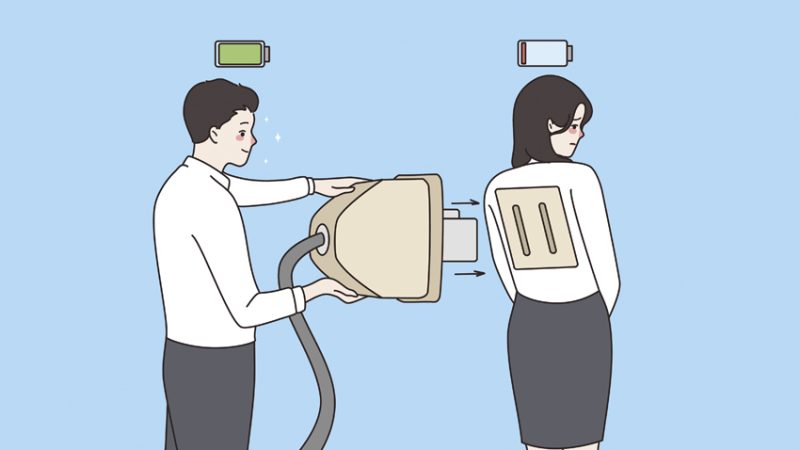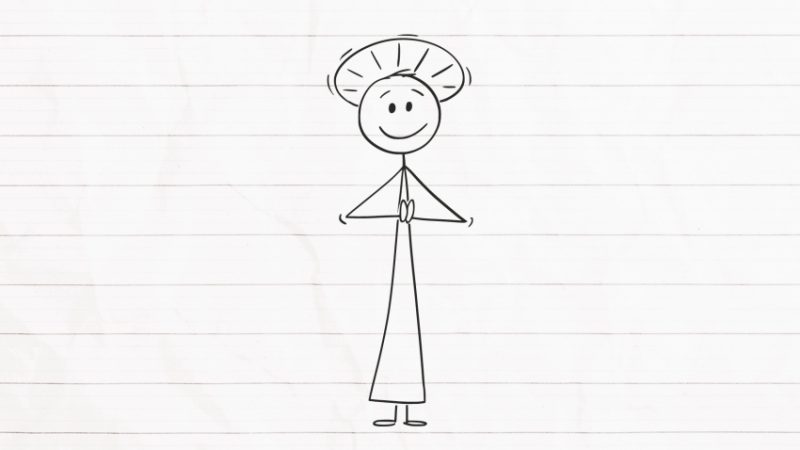Teacher retention – What keeps us hanging on in there?

The headlines may talk of a teacher exodus, but many remain and are working harder than ever, writes Jenny Hampton – so what keeps them going?

We know that teachers are leaving the profession. We know that fewer are joining. There’s no end to the statistics and headlines regarding teacher retention and the monumental staffing crisis in English schools.
But what about those who are still hanging on in there? The teachers of 10, 15, 20+ years’ experience who aren’t starting their own businesses, or retraining, or taking leaps into other sectors?
These are the people deciding to stay in state education, despite years of underfunding, pay cuts and the challenges following in the wake of COVID. What do we know about this group of teachers who are effectively sustaining our schools outside of the headlines?
What keeps us going
There’s a blob of naysayers who continue to insist, as they have done for years, that we teachers are too lazy and too in love with our endless holidays to actually leave our jobs.
Now, it may be true that some people have built lifestyles and caring commitments around term-time jobs that afford a degree of flexibility after 3.30pm on certain days.
But is it not equally possible that we’re talking about people who are incredibly resilient and indomitable? This is despite contending with a mountain of accountability measures.
Maybe, just maybe, those teachers who remain teachers despite everything are professionals who are willing and able to see beyond the walls imposed by a flawed, increasingly market-led education system. And if that’s the case, what’s enabling them to keep on hanging on?
Stepping away from leadership
One secondary school teacher of 27 years standing told me that it was his interactions with young people, the unexpected laughs and offers of help from teenagers, that have ultimately kept him from becoming just another retention statistic.
He went on to explain that spending more time in the classroom and less on fulfilling management responsibilities in an office worked best for him.
A turning away from leadership opportunities was a common thread amongst a number of people I spoke to, and reflective of a wider picture.
Teacher Tapp and School Dash’s latest annual report on recruitment and retention highlights concerns around recruiting future heads. It noted that, “The percentage of deputy and assistant heads expressing an aspiration to become a headteacher has fallen to 43%, down from the pre-pandemic figure of 56%.”
There are others who argue the opposite. That more experienced teaching colleagues should, in fact, actively seek out additional responsibility. That the added variety and challenge of leadership activities – be it analysing data, leading assemblies or designing curriculums (or an endless list of other tasks) – increase one’s motivation and sense of fulfilment.
Yet the fact remains that the recruitment and retention crisis has cast a shadow over such leadership roles, from dealing with non-specialists to addressing holes in the timetable.
So let’s frame the question differently. Are there any posts in educational settings that aren’t weighed down by all the usual demands of middle leadership? What about important, yet rewarding whole school responsibilities like primary outreach, leading on literacy or overseeing new STEM initiatives?
The typical teacher will have developed an enviable skillset over the years they’ve spent in the classroom. So could the prospect of being able to draw on these outside of the classroom persuade some teachers to remain within the profession?
Beyond the greener grass
I myself previously left teaching, but later returned. I remember harbouring fantasies about leisurely queuing at lunchtime for an expensive sandwich while holding a tiny handbag.
I’d somehow convinced myself that teaching involved the most mundane activities in the world, and that in no other industry were trained professionals expected to punch data into information systems or lug boxes about in the name of admin.
I also fancifully believed that teachers were the only ones who regularly ‘dealt with behaviour’ as part of their job. I was soon to be proven wrong on all counts.
“I’d somehow convinced myself that teaching involved the most mundane activities in the world”
During the five months I spent in the wilds of the corporate sector, I observed educational trainers load vans with boxes ahead of appearances at conferences.
I came to see just how many drop-down menus and clicks my GP had to complete just to schedule a routine appointment. I started noticing the omnipresence of those signs warning the public that ‘Abusive language won’t be tolerated.’
Outside of teaching, my days felt slower, longer and markedly inactive by comparison. It turned out that for me, at least, chatty corridors, hastily eaten homemade lunches and bulky bags weighed down with exercise books made for more fulfilling workdays.
And needless to say, that fancy sandwich queuing routine I’d coveted quickly became both expensive and boring.
Finding the joy
The vibrant voices of #edutwitter seem to suggest that engaging in bigger, more far-reaching conversations around key issues in education – assessment reform, funding, etc. – could help balance out the monotony of teaching the same topic for the 16th time.
Similarly, the continued abundance of blogs and websites dedicated to pedagogy indicate that reflecting on our daily practice in the context of broader pedagogical trends and ideas can help us better cope with those heavy marking loads.
The same goes for extracurricular activities. That might be coaching the Y8 cricket team, producing the school show or getting an environmental protection group off the ground.
In my case, I found carrying out school-based action research for my MA to be hugely motivating. It helped me draw a clear line between what was happening in my classroom and the ever-growing body of education literature and research.
Part of this process involved interviewing students and listening to them reflect on their learning. This helped me fully recognise the importance of what we do. We alter minds and change lives.
Because of us, young people know more, can understand more and think more critically. Sometimes, students can simply feel less anxious and more content for being with us. This is why it’s sometimes well worth finding ways to remind ourselves of the power and impact in what we do.
Colleague interactions
I love watching the teachers that fiction gives us. From Mathilda’s Mrs Trunchball, to Dead Poets Society’s Keating or The Worst Witch’s Miss Hardbroom, they always get me thinking.
But how many of us devote similar levels of thought to our own colleagues and the effects they have on us? We all love a moan – and will have frequently earned it. But it can be hard when continually exposed to others’ grievances, however justified, and difficult to make the most of our scant PPA time in shared rooms dominated by riotous gossiping.
Equally, however, there are those colleagues who always have time to listen. And those with an endless reserve of hilarious tales to lighten a gloomy January afternoon.
I’m not suggesting laying down staffroom laws will transform teacher retention for the better. However, it might be worth thinking about the people we find ourselves working alongside, and whether they improve our days or make them longer.
Across the country, teachers are turning up, working hard, changing lives and making a difference. Until we see some deep-rooted educational reforms, their hanging on is something we should all be grateful for.
Coach yourself fitter
Few of us have the time to stop and reflect on the quality of our professional lives. This is a huge part of the problem. Difficult though it may be, making a concerted effort to pause and ask yourself some or all of the following questions can mark an important step in making your working day better.
- If I could wave a magic wand for a better work day, what would it look like?
- What is within my control to change?
- What activities bring me most joy?
- How can I do more of that, and less of the other stuff?
- Which people bring joy, ideas and laughter to my day?
- What steps do I need to take to make this happen? Who do I need to speak to? What do I need to find out?
Jenny Hampton (@brightonteacher) is an English teacher, literacy lead and former SLE (literacy)











